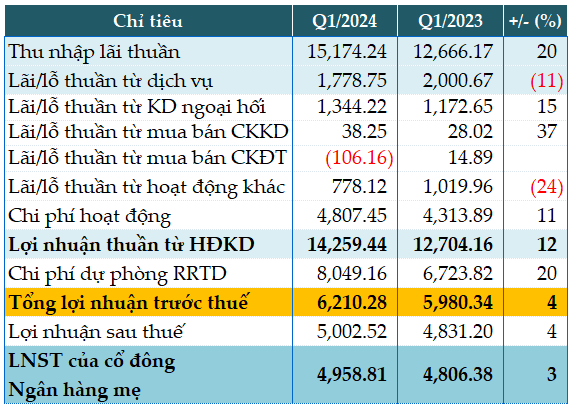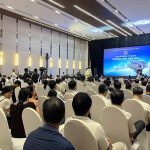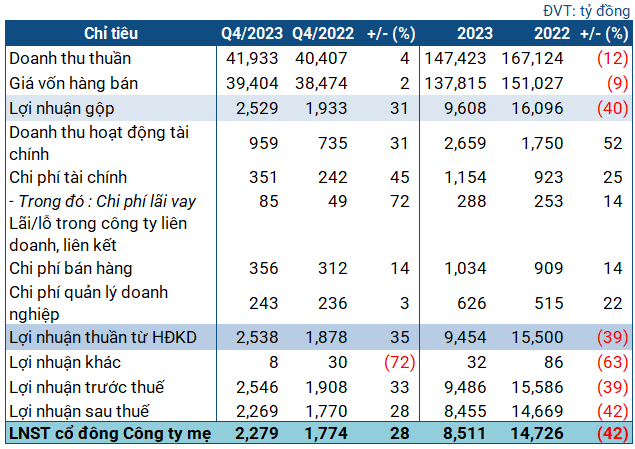Within the framework of the Vietnam Private Sector Competitiveness Enhancement Project (USAID IPSC), on March 21, the Enterprise Development Agency (Ministry of Planning and Investment) in coordination with the United States International Development Agency (USAID) organized a seminar on “Building Advantages – Sustainable Future with the ESG Vietnam 2024 Initiative”.
ESG IS NO LONGER THE FUTURE
In her speech at the seminar, Ms. Nguyen Thi Bich Thuy, Deputy Head of the Small and Medium-sized Enterprises Department, Enterprise Development Agency (Ministry of Planning and Investment), said that climate change affects the social and economic life of all countries worldwide, and Vietnam is no exception.
Faced with these impacts as well as the requirements of partners, markets for sustainable production and consumption, as well as the commitments of the Vietnamese Government on sustainable development… pose significant challenges for the business community.
ESG (Environment – Society – Governance) are the pillars for measuring the factors related to the sustainable development orientation of businesses. Practicing ESG as well as sustainable business models is a trend today.
More and more markets around the world, especially major markets such as the EU and the United States, are applying sustainable production and green production standards for goods. This poses a challenge for businesses if they want to enter large markets, participate in and lead supply chains, they must develop green and sustainable practices.
However, according to the representative of the Enterprise Development Agency, this is also an opportunity for businesses to turn compliance into a competitive advantage, ensuring the sustainable development of businesses in the future.
The business community needs to keep up with new trends to enhance their competitiveness, avoid losing opportunities to participate in the global value chain in a sustainable manner.
Mr. Mark Birnbaum, Director of the USAID IPSC Project, said that green growth is no longer the future, it is happening right now. Connected to the green transition journey, the business community faces increasingly big challenges.

According to Mr. Mark, the definition of a successful business is changing in a more comprehensive direction. Traditional metrics for evaluating business performance through profitability, finances are no longer enough. Instead, a more comprehensive approach is being applied more widely, with equal importance given to environment – society – governance factors alongside conventional financial indicators.
Practical experience shows that businesses prioritizing sustainable development in terms of the environment, fulfilling social responsibilities, and actively applying corporate governance measures have more opportunities to achieve sustainable success.
A recent study shows that businesses with higher ESG ratings achieve better financial performance, as reflected in a higher return on equity of more than 35% and a higher enterprise valuation of 20% compared to businesses with lower ESG ratings.
The impact of ESG indicators goes beyond financial indicators, through meeting stricter requirements. ESG acts as a catalyst to help businesses minimize risks, enhance recovery capabilities, and gain competitive advantages in the context of the global environment facing many challenges from climate change, resource scarcity… In the context mentioned above, Vietnamese businesses need to grasp ESG principles, prioritize ESG practices to maintain sustainable development in the future.
COMPANIES NEED TO BE WELL-PREPARED
Ms. Pham Thi Ngoc Thuy, Executive Director of Office IV, shared that for more than 2 years, the green and sustainable story has been mentioned a lot, even many businesses have shared that they are somewhat “confused” because they want to be green, sustainable, and ESG… but ultimately, what is what?
Explaining further, Ms. Thuy shared that practicing ESG in businesses is the goal for businesses to practice sustainable development to increase the value of their production and business activities according to the commitments on E – Environment factors, S – Social, and G – Corporate governance. This is also the information channel that helps businesses identify risks and opportunities that may affect their long-term value creation capability.

Currently, many countries that are important trading partners with Vietnam have enacted regulations on sustainable development, ESG practices. For example, with businesses exporting to the EU, in just about 2 years, if there is no movement, many businesses that are part of the supply chain for Europe will be excluded from the chain. That is market risk related to the letter E (environment).
Regarding the letter S for social issues, recently, Germany has promulgated laws related to the German supply chain, in which it sets out many criteria for labor, women’s labor, working environment… Thus, with businesses that are or want to be part of the German supply chain if they do not recognize these regulations, they will face the risk of losing or having no opportunities.
About corporate governance (G), Ms. Thuy said that in the story of governance, there are many different levels of capacity development or governance level. The factors related to initial governance are the nature of the business itself to increase its core value.
Moreover, policy developments (both domestic and international) have also contained factors that if businesses do not comply with, they will face many risks. “Therefore, businesses need to remember this to be well-prepared before or while following the sustainable development path,” said Ms. Thuy.
However, the representative of Office IV believes this is not a problem that applies universally to all businesses, not all the criteria set out are the common solution for all businesses, and for each type of business, there will be different intersections, choices, and challenges.









































